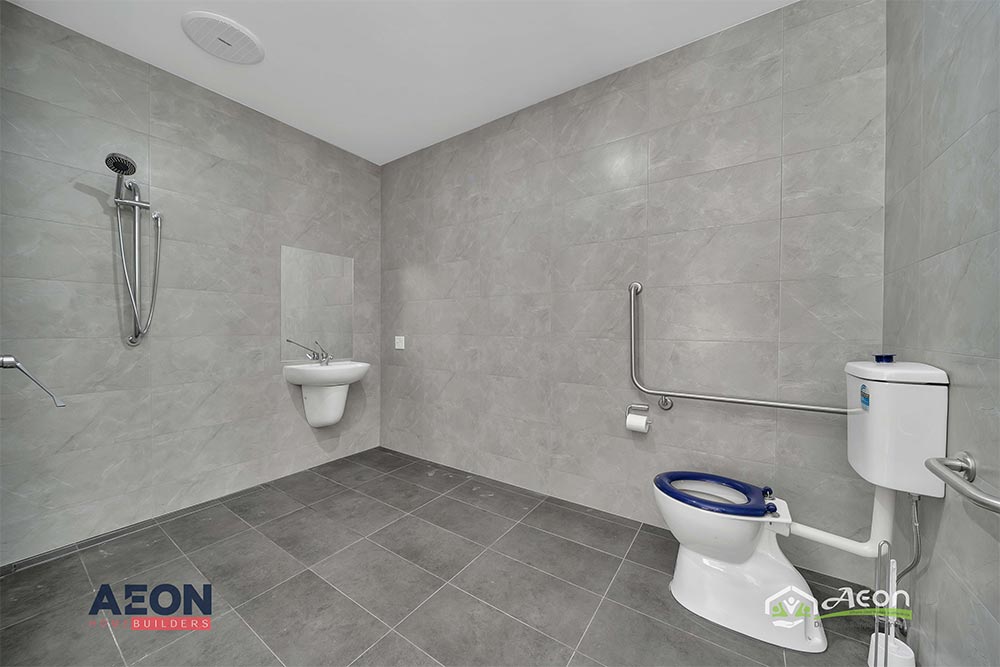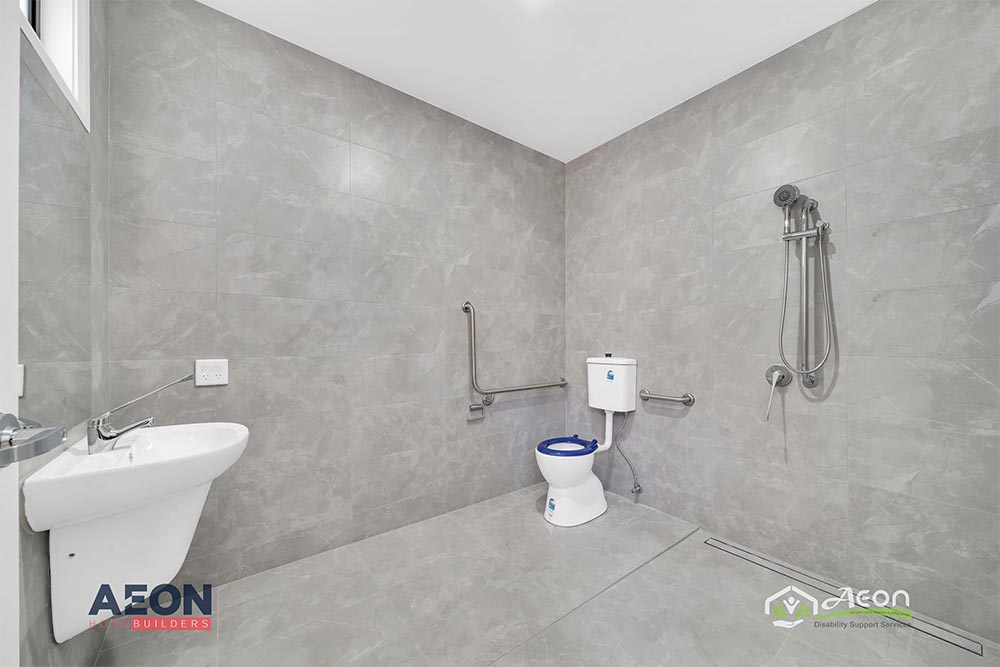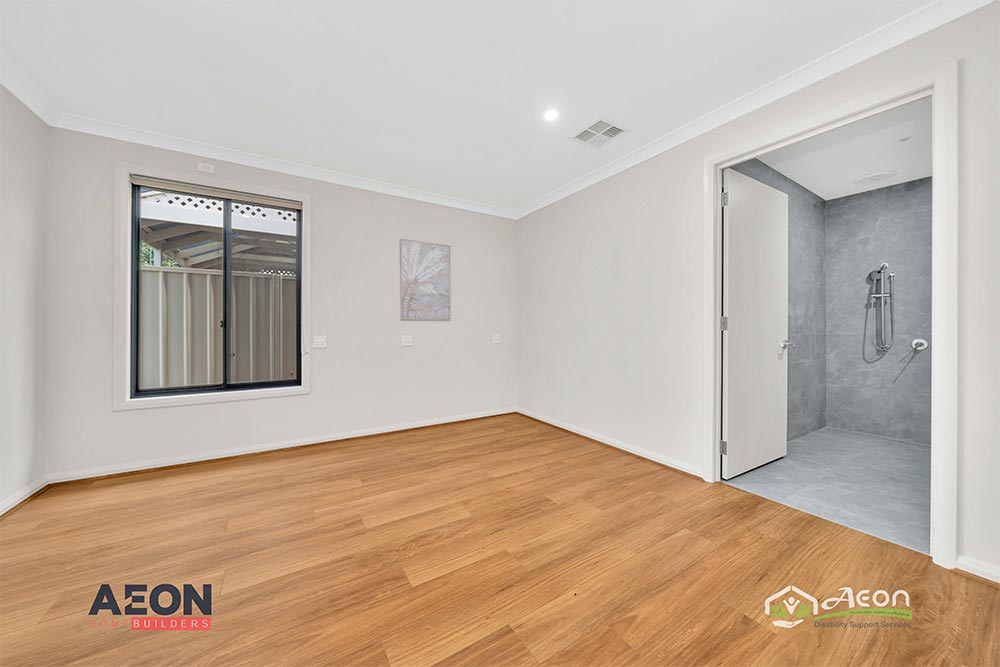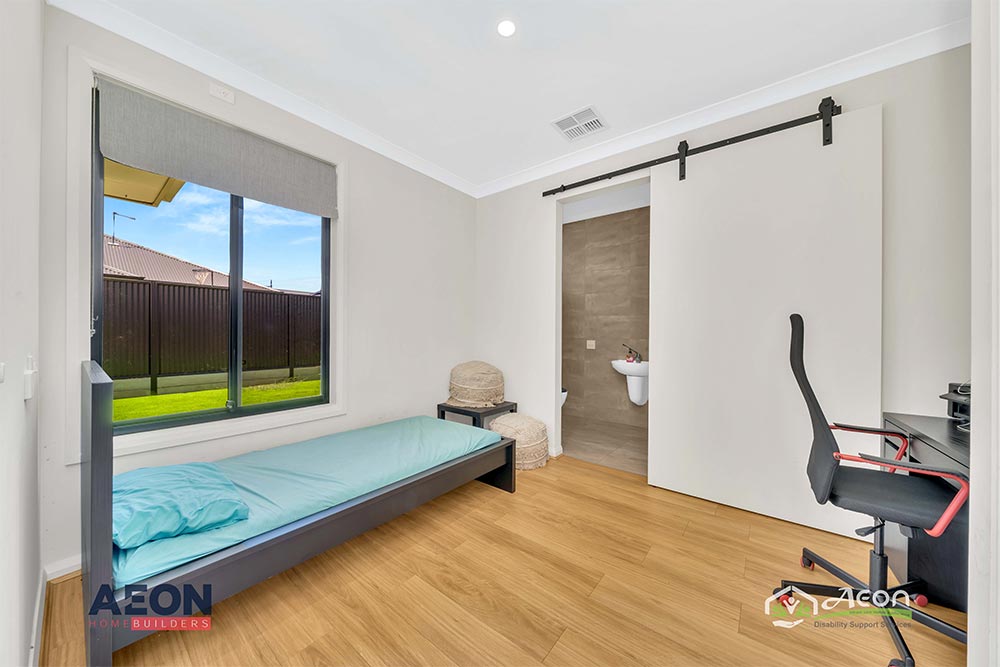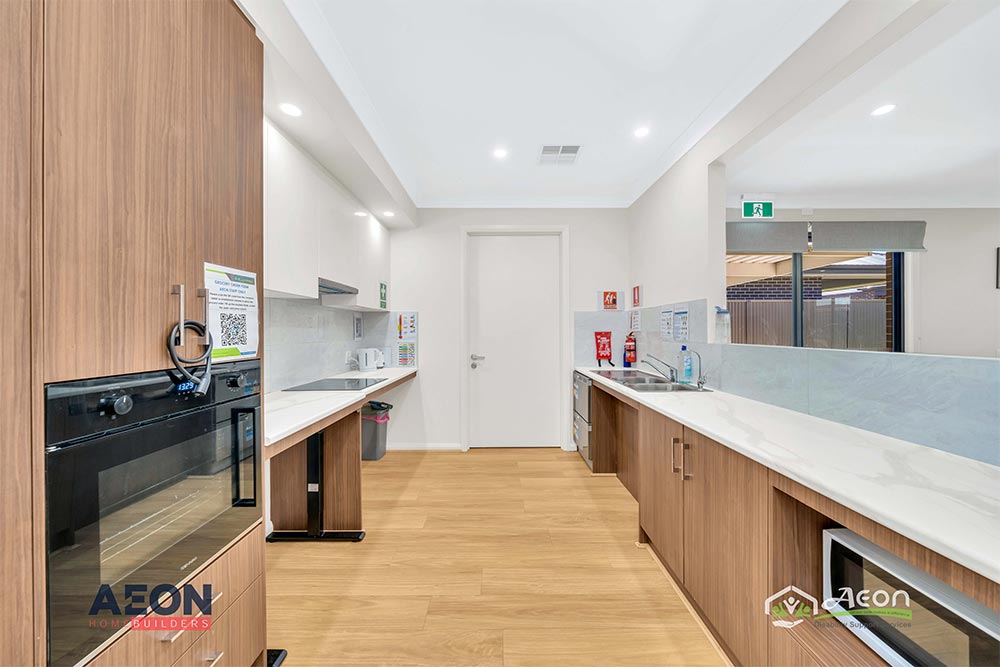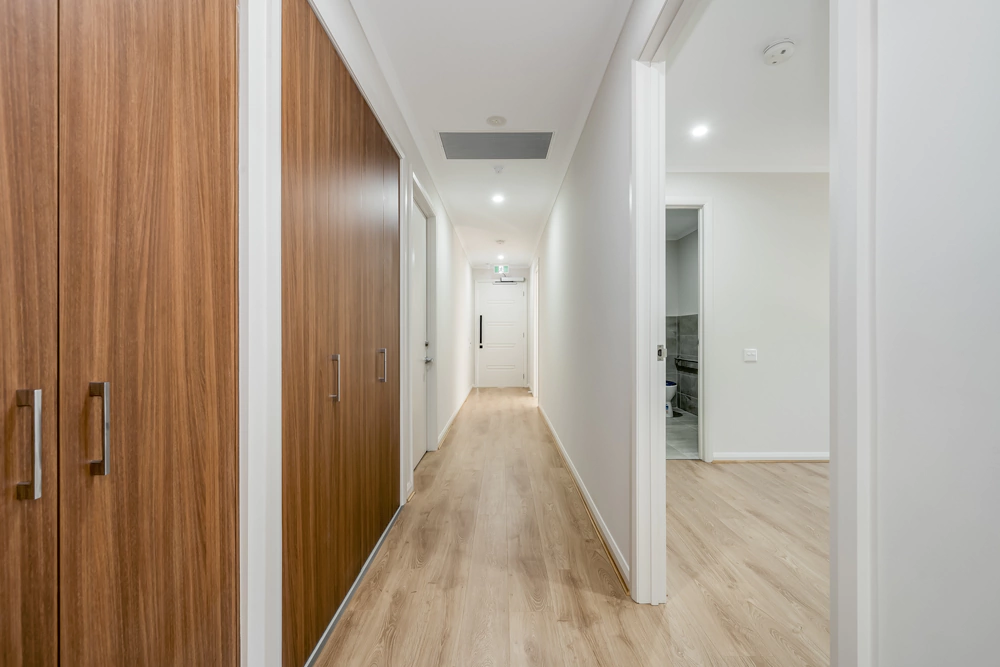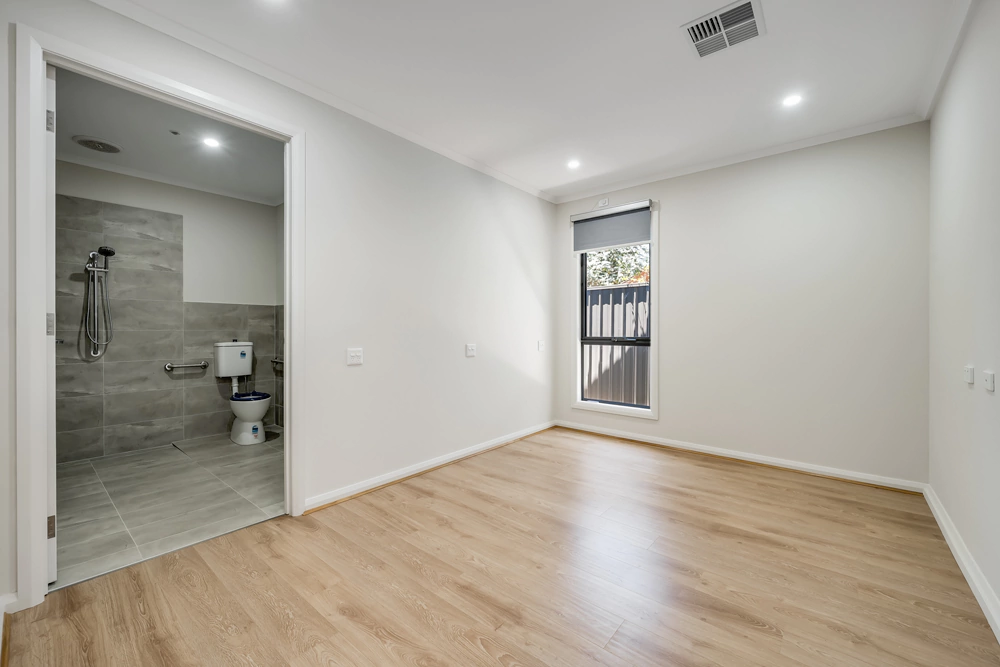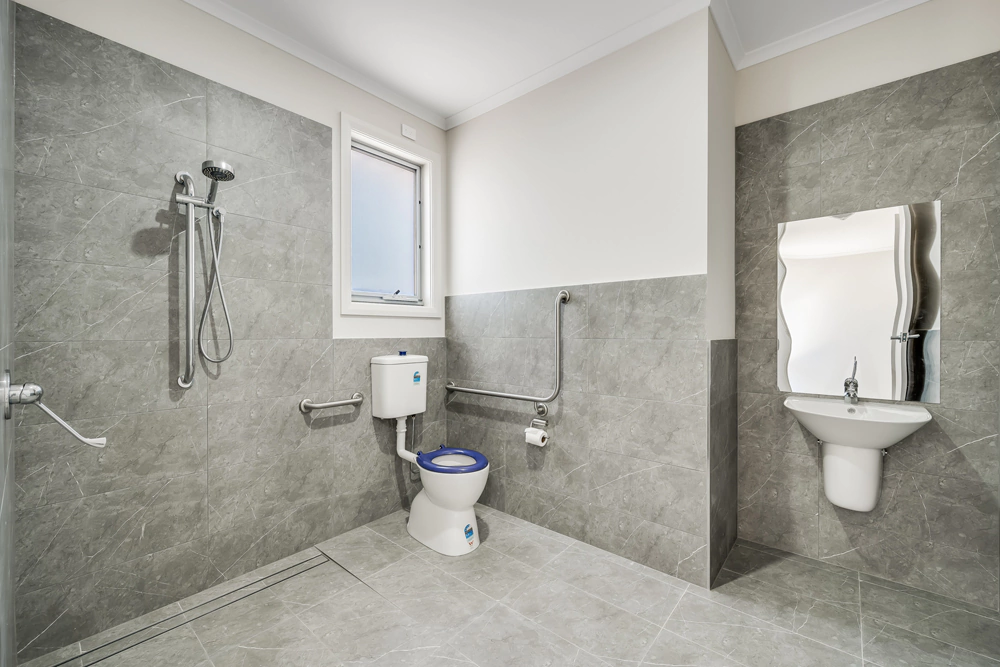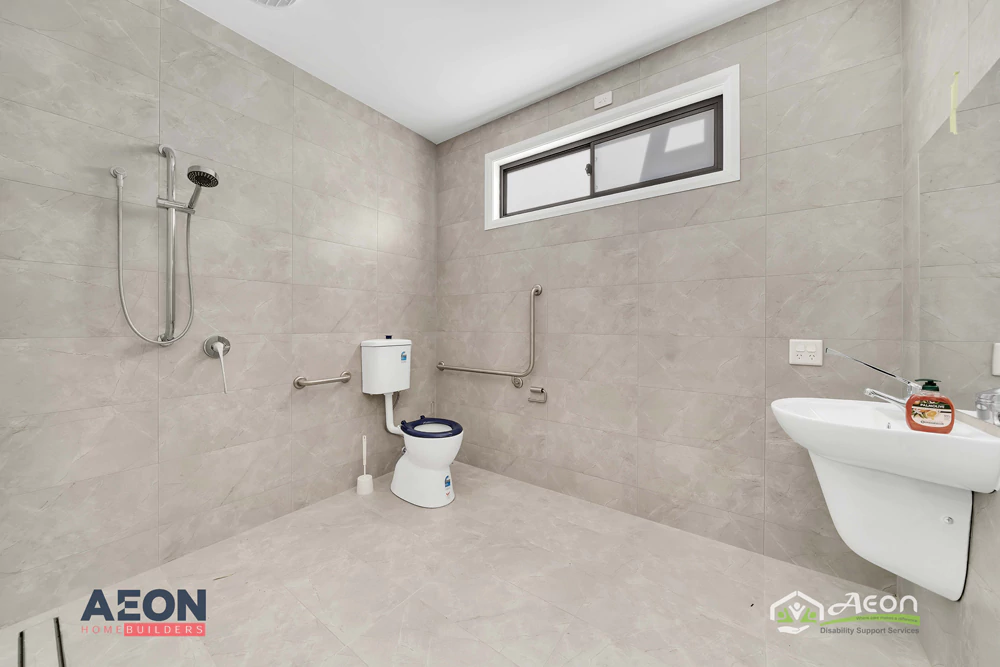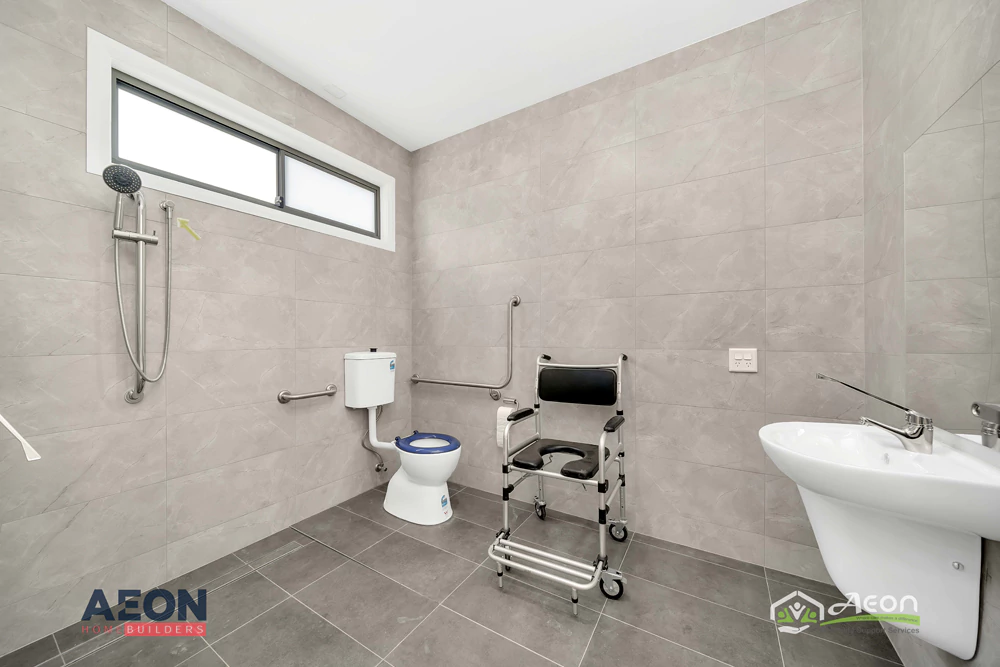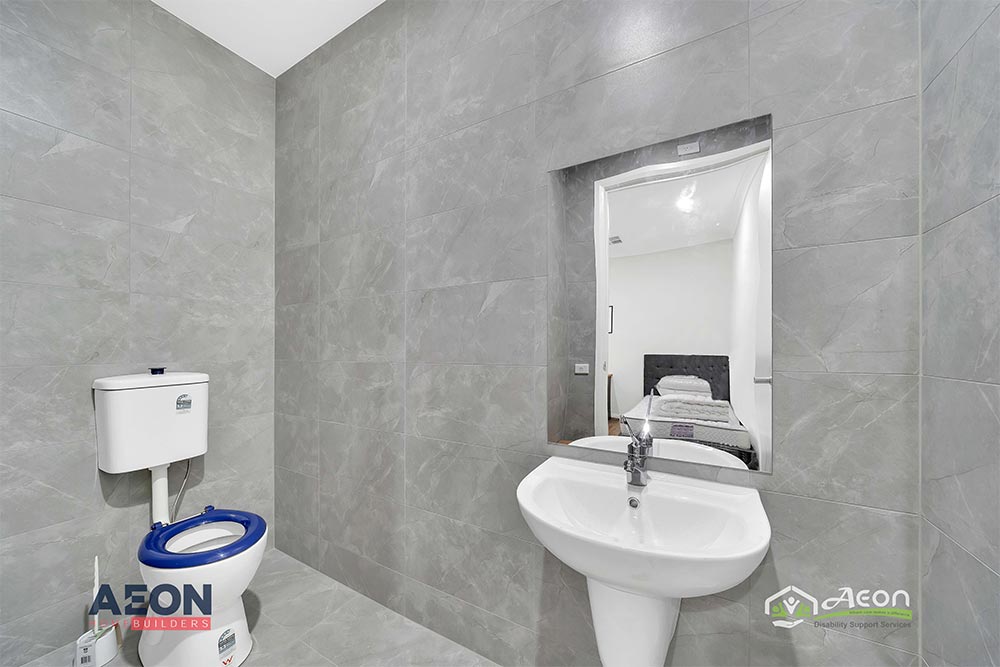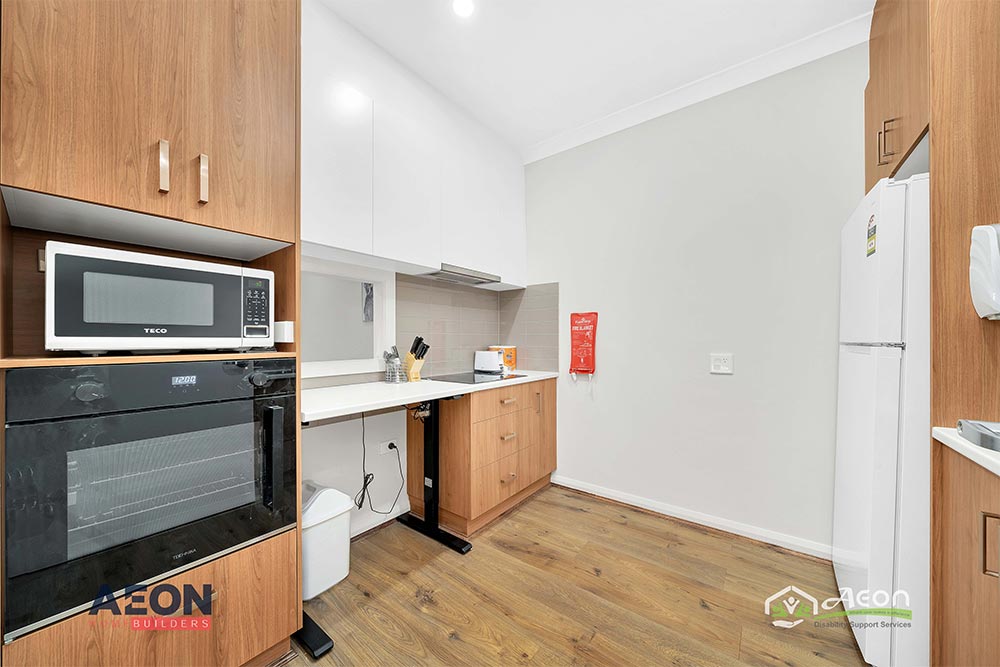
10 + years of experience

Where Compassion Meets Expertise Your Trusted NDIS Provider
At Aeon Disability Services, we’re here to support participants with complex needs, whether you require high-level care, exhibit challenging behaviours, or need specialised nursing attention in our SDA accommodations. Our team is highly qualified, experienced, and equipped with advanced training to provide the best possible care.
Our support workers are not only well-versed in NDIS intricacies but also genuinely passionate about nurturing your personal growth and success. With services tailored to individuals aged 7 to 65, you can trust in our expertise. We wholeheartedly dedicate ourselves to fostering skill development and helping you achieve your NDIS goals.
As one of the most reputable and registered NDIS providers in Adelaide, South Australia, we uphold strict standards of professionalism and ethics to provide reliable services. We are registered for a comprehensive range of services, including Restrictive Practices, Community Nursing, and High Intensity Supports. Our registrations signify our adherence to benchmark practices, accountability, and continuous improvement. With us, you can have complete peace of mind knowing that you or your loved one will receive services of the highest quality, tailored to individual needs and aspirations.

With a focus on care, respect, and person-centred services, we strive to create an inclusive environment that fosters growth and self-empowerment. We offer a wide range of NDIS disability services, including (but not limited to):
- Supported accommodations (SIL/STA/MTA)
- Specialist Disability Accommodation
- In-home supports
- Social and Community Participation
- High-Intensity Supports
- Community Nursing
- Behaviour Support Plans
- Support Coordination
- Day Options
- Children Services
Your journey is important to us, and we’re here to ensure that your choices shape your path while we stand by to offer the help you require.
Understanding the NDIS (National Disability Insurance Scheme)
The National Disability Insurance Scheme (NDIS) is an Australian government initiative designed to provide support and services to individuals with disabilities, as well as their families and caregivers. Launched in 2013, the NDIS operates on a person-centred approach, aiming to empower participants by tailoring support plans to their specific needs and goals.
Under the NDIS, eligible individuals receive funding to access a range of services, including healthcare, therapy, personal support, and assistive technology. This funding mechanism replaces the previous one-size-fits-all approach with a more flexible system, promoting individual choice and control over the support they receive.
To access the NDIS, individuals must meet certain eligibility criteria based on their disability and residency status. Once approved, participants work with the NDIS to develop a personalised plan that outlines their goals, needs, and the support they require. This plan is regularly reviewed and adjusted to ensure that it continues to meet the participant’s evolving needs.
Frequently Asked Questions
You have three options for managing NDIS funds: NDIA-managed, self-managed, or plan-managed. With NDIA-managed funds, the NDIA handles payments directly to service providers. With self-management, you manage payments and record-keeping yourself. Plan management involves appointing a third-party to handle payments on your behalf. Your choice depends on your comfort level, organisational skills, and the level of control you want over fund management. Your NDIS planner can provide guidance on the best option for you.
Yes, participants have the freedom to choose their service providers under the NDIS. This is in line with the scheme's focus on giving individuals greater control and choice over the support they receive. Participants can choose from various registered NDIS service providers, including disability service organisations, therapists, community groups, and more. They can also opt for non-registered providers, although these providers need to meet certain quality and safety standards.
Finding NDIS service providers involves researching registered providers in your area. You can use the NDIS Provider Finder tool on the NDIS website or contact the NDIA for a list of registered providers. Additionally, you can ask for recommendations from support groups, friends, or your NDIS planner. It's important to consider your needs, goals, and preferences when selecting a provider, ensuring they offer the services that align with your NDIS plan.
Registered NDIS service providers have met specific quality and safety standards set by the National Disability Insurance Agency (NDIA). They offer services that align with the NDIS guidelines and can directly claim payment from the NDIA on your behalf. Non-registered providers may not meet these standards but can still offer services. However, if you choose a non-registered provider, you might need to manage the payments yourself and ensure their services comply with your NDIS plan.
The NDIA monitors registered NDIS service providers to ensure they meet quality and safety standards. This includes regular audits, assessments, and compliance checks. Providers must adhere to the NDIS Code of Conduct, maintain appropriate qualifications, and demonstrate a commitment to person-centred care. Participants can provide feedback on their experiences with providers, and any concerns about the quality or safety of services should be reported to the NDIA for investigation and action.
Assistive Technology (AT) is a vital component of the NDIS that aims to provide aids, equipment, and technologies to help you better engage in activities and improve your overall quality of life. AT includes items like mobility devices, communication aids, hearing aids, home modifications, and specialised computer software. The NDIS funds AT if it's necessary and directly related to your disability support needs, and if it helps you achieve the goals outlined in your NDIS plan.
Support Coordination is a service provided by the NDIS to help you navigate your plan, access services, and achieve your goals. A Support Coordinator assists you in understanding your plan, connecting with service providers, scheduling appointments, and addressing any challenges that arise. They can help you make the most of your funding, ensure that your support aligns with your needs, and empower you to manage your NDIS journey effectively.
Yes, you can request changes to your NDIS plan during your annual plan review or in case of significant life changes. To request changes, contact your NDIA planner or coordinator. Provide updated information about your needs, goals, and any changes in your circumstances. The NDIA will assess the changes and adjust your plan accordingly to ensure it continues to reflect your current needs and aspirations.
If your child is aged 0-6 and shows developmental delays or disabilities, you can apply for early intervention services under the NDIS. Start by completing the Access Request form and indicating your child's age. The NDIA will assess their eligibility for early intervention support. If eligible, the NDIA will work with you to develop an NDIS plan that includes appropriate early intervention services, such as speech therapy, occupational therapy, or other developmental support.
If you find that your NDIS plan is not adequately meeting your needs or goals, you can request a plan review. Reach out to your NDIA planner or coordinator and explain your concerns. Provide details about what aspects of the plan are not working for you and why. The NDIA will assess your request and conduct a review to determine if changes are necessary. It's important to communicate openly to ensure your plan is adjusted to better align with your requirements.












